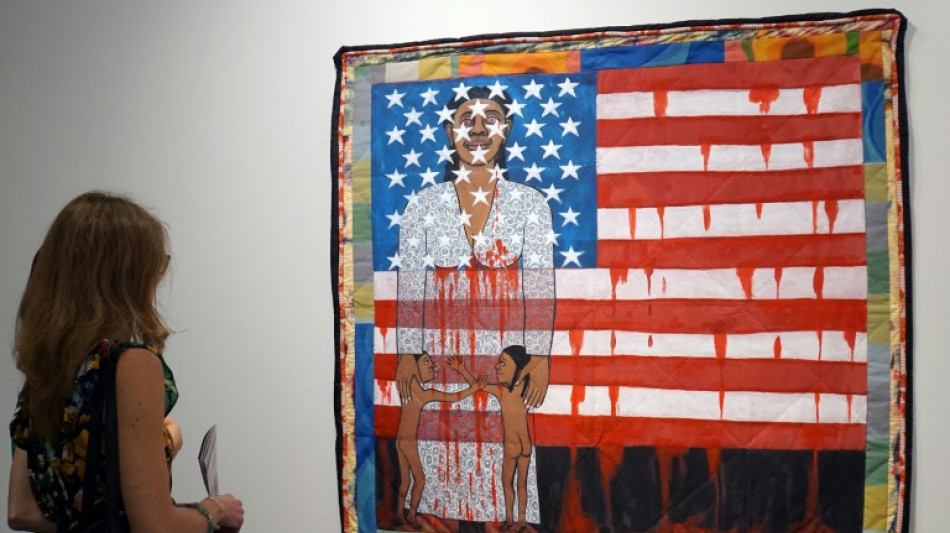
RBGPF
61.8400

Faith Ringgold, a pioneering multimedia artist who explored race relations in the United States and advocated for Black people and women to be better represented in the arts, died on Saturday at the age of 93, US media reported.
Renowned for her pictorial quilts combining textiles and painting, Ringgold won international fame, with her art exhibited at the White House and in museums around the world.
Born in New York in 1930, Ringgold's childhood was shaped by the Harlem Renaissance movement, which saw a blossoming of African American art and literature.
In the 1960s, inspired by the civil rights movement against racial segregation, Ringgold created a series of political paintings known as the "American People Series," in which she explored race relations in America.
In 1971, she launched into social activism, founding the "Where We At" artists collective for Black women and frequently protested the lack of representation of Black and female artists in American museums.
One of her most famous paintings, "American People Series #20: Die," made in 1967, evokes the civil rights protests that were shaking the country at that time.
The painting's scale, composition, and abstract background evoke Picasso's 1937 masterpiece "Guernica." "Die" is currently exhibited at the Museum of Modern Art in New York, next to another painting by Picasso, "Les Demoiselles d'Avignon" (1907).
Ringgold also created a number of works for public spaces, such as mosaic murals in a subway station in Harlem representing prominent Black figures like Sugar Ray Robinson or Malcolm X.
Ringgold's three-panel "The 9/11 Peace Story Quilt," which she designed in collaboration with New York City students on the 10th anniversary of the September 11, 2001 attacks, conveys the important of intercultural communication and peace and was exhibited at New York's Metropolitan Museum of Art.
F.Damodaran--DT